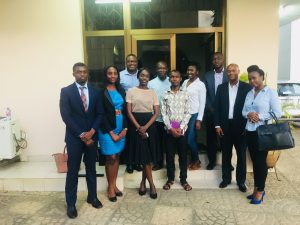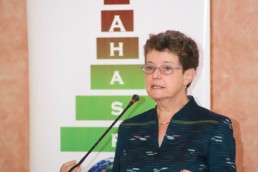On September 20, 2018 a cross section of Ahasporan entrepreneurs were invited to participate in a round table discussion to provide input towards the development of the National Entrepreneurship Policy. Shawbell Consulting, mandated by the Government of Ghana to facilitate the development of the policy, led the discussion. The discussions centered around the entrepreneurship terrain of the country. Participants discussed the challenges with starting (and registering) a business, as well as the challenges faced by entrepreneurs as employers. The group provided concrete examples about areas through which the Government can improve the business climate in Ghana.
 Entrepreneurs also face major funding barriers which hinder growth; as such providing regulations that assist small businesses to access funds would be useful. Further, regulatory measures tend to stifle small businesses, particularly where business ideas are novel and ‘out-of-the-box’. Limited access to information on what to do when starting a business in the country also makes even replicating existing models from the diaspora, very challenging.
Entrepreneurs also face major funding barriers which hinder growth; as such providing regulations that assist small businesses to access funds would be useful. Further, regulatory measures tend to stifle small businesses, particularly where business ideas are novel and ‘out-of-the-box’. Limited access to information on what to do when starting a business in the country also makes even replicating existing models from the diaspora, very challenging.
Some overall conclusions were that there is great need for:
- better access to information
- school curriculum restructuring to develop students’ critical thinking skills in order to facilitate the problem-solving attitude necessary for entrepreneurship
- providing diverse funding options, particularly for those above the age of thirty-five who are often cut off from accessing financial aid
- readjustment of the existing policy on payment of goods and services rendered to Government institutions which currently allows Government to delay payment to entrepreneurs, thereby making it difficult for entrepreneurs with limited capital to compete for Government contracts
Ahaspora continues to play an important role in Ghana’s development, through its ability to provide diverse views from its very versatile members who are engaged in multiple industries, as well as connections to the diaspora which allows us to provide input on issues that are pertinent to Ghanaians in the Diaspora. We will continue to be engaged in policy development, as well as implementation towards promoting economic growth of the country.




